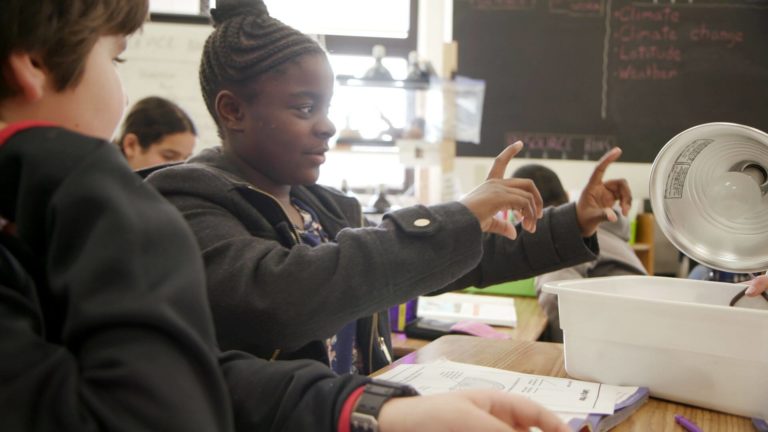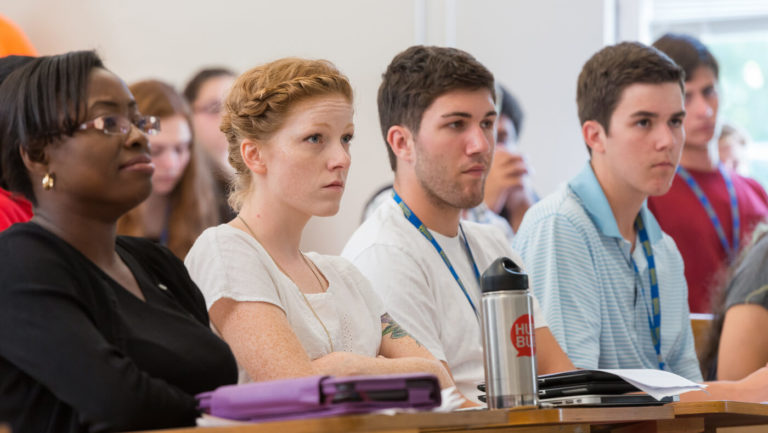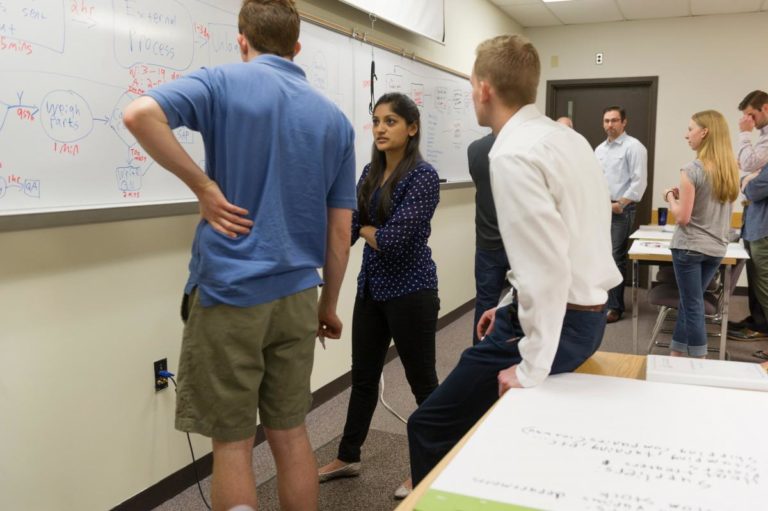Attempting to name the top five skills every high school student needs to have upon graduation is a daunting task. Everyone has their own opinion and no one wants to stop at “just five?!” In today’s fast-paced ever-changing world, labeling five that may stand the test of time is difficult. I dive into my research like every high school graduate should know how to do, find credible sources, and determine five I deem appropriate. The conclusions arrived here are mainly from a variety of backgrounds: 1) The Ohio Department of Education (ODE) 2) Recruiters and hiring managers, and 3) A brief look at the Mission and Vision statements of the Top 10 Ranked Schools Districts in Ohio, according to the 2018 State Report Cards.
Currently, the ODE has adopted a new direction of focusing on the “whole child.” “We felt it was really important to develop the profile…the characteristics and attributes that a graduating senior should have in order to make a successful transition to adulthood,” said ODE board member Linda Haycock of Lima. “We really need to start looking at the student as a whole person and not just as an assessment-taker.” Twelve (a thirteenth in discussion) attributes were determined and the “Model Profile of a Future Graduate” was created as part of the strategic plan. Other ODE members are working to categorize goals into four “domains” to guide discussions moving forward and to track progress. This article will have references to the ODE attributes and domains. Found to be the top five skills every graduate should possess are:
1.Problem Solving/Critical Thinking
This skill is also important enough to be one of the ODE’s four domains. The two skills can be addressed separately or together, but most often a great problem solver is also a great critical thinker. There are two general features to any problem: a solution and an obstacle. Someone who thinks critically will be able to work through the obstacle methodically in order to solve the problem. Perhaps that is why employers rate problem-solving skills so highly. Problem-solving and its core ingredients, such as critical thinking, are relevant to virtually any job role. Writer Lewis Ashman states, “No matter the sector, industry, or job function, challenges and problems that you need to solve will occur regularly, and will often be the measure of your success in the role.” Educators have a very difficult task as they are preparing students for jobs and careers that do not even exist yet! With the world changing as fast as it is, critical thinking and problem-solving are considered to be the key skills for the future. Consider how many positions have become remote today as to just twenty years ago. Workers need to be prepared to work independently, think critically for themselves and problem solve as managers are not always on-site to supervise. Being able to self-manage has always been important for life success; now it is becoming even more important to meet the needs of the future workplace. Problem-solving is so important that ODE placed Lean Six Sigma Yellow Belt (3 points) and Green Belt (6 points) in every Industry Recognized Career Pathway available for graduation.
2. Foundational Knowledge and Skills
Problem-solving and foundational knowledge and skills are the first two attributes listed in the referenced ODE related article. Foundational skills are a must and are also an ODE domain. We still need to teach the students the basics – reading and mathematics and a host of other subjects. That list is constantly contracting and expanding as debates over skills such as shop and sewing are as important as technology and coding. These additional courses are what the ODE defines as the “Well-Rounded” domain. The exact right blend will always be debated, but the fact that Ohio’s Each Child, Our Future initiative with its $8 million in grant funding is currently in the expansion phase of opening up a variety of career options to all students, is exciting for Ohio’s students.
3. Leadership
Leadership was mentioned in the Mission and/or Vision statements of three of the top five ranked schools in Ohio: Indian Hill (#3), Marion (#4), and Madeira(#5). Leadership definitions vary, but they generally define someone that a school district would be proud to claim: confident, responsible, positive, collaborative, and possessing integrity. All of those characteristics define the fourth domain of the ODE: addressing the social-emotional aspect of our students. Not every graduate needs to be a leader, but don’t we want every graduate to feel confident in themselves, take responsibility for their actions, have a positive outlook on life, be able to work well with others personally and professionally, and have the integrity of Abraham Lincoln? Guidance counselors would agree that positive self-esteem in a high school student serves them well.
4. Citizenship & Global/Cultural Issues
“Culturally aware” is the thirteenth attribute in the discussion phase at the ODE and is a topic often grouped with citizenship. Many of Ohio’s top ten ranked schools had a variation of this skill in their missions/visions, including Solon and Ottawa Hills, #1 and #2, respectively. Oakwood City School District (#7) states that they “…educate students to become ethical decision-makers … and contribute to the greater good of the world.” Today’s world is much different than the world we all grew up in, regardless of our age. With technological advancements, talking to someone on the other side of the world is at our fingertips. It is important to be not only civic-minded of our own country but to understand and respect those values and beliefs of other countries. Anne Arundel County Public Schools in Annapolis, Maryland, piloted a high school course in 2017 titled Global Community Citizenship. Leading tenets of the course were inclusion, empathy, and acceptance with the goal of developing students as thoughtful citizens and changemakers. It has currently been expanded into two courses.
5. Communication
“Communication is the key to success” is a common phrase, and it too was common among the top-ranked schools, the ODE attributes, and is actually integrated into just about everything we do in life. According to a survey released in August of 2018, “Executive and hiring managers said good oral communication is the skill they want most from job candidates.” Whether graduates are interviewing for that first big job, conversing with a client, delivering a presentation, or styling hair, good verbal communication skills are a must in just about every position. This involves a multitude of considerations from planning visuals for your target audience to voice, speed, gestures that will all be most beneficial in accomplishing your goals. Good oral communication involves the aspect of being an interactive listener as well.
Graduates will also need strong communication skills in the written form. Current graduates may one day be writing assembly instructions for IKEA, construction proposals, proposals for grant money, or SOAP formatted notes in an electronic medical record. Monique Felder of Nashville, Tennessee’s Literacy Program told Education Week that “Being able to communicate clearly (in speech), to a variety of audiences, is the 21st-century demand on workers, and our students need to be ready.”
How these skills compare to the top five skills taught in the thirteen original colonies are interesting. The commonly accepted list of the 1700s includes a list of five subjects: reading, writing, arithmetic (the three “R’s”), history and geography. Much of that was taught by rote memorization and flat chalkboards in a one-room schoolhouse, a scene a bit different from today. The top five skills chosen here in 2020 include problem-solving and critical thinking skills, foundational skills such as reading and math, leadership characteristics, a sense of global/cultural citizenship, and the ability to communicate well. It looks like we still have the basics covered; however, the 21st-century education scene does appear a bit rounder.
References
- acer for education, “Why are critical thinking and problem solving essential in today’s education?” 2018, https://eu-acerforeducation.acer.com/learning-skills/why-are-critical-thinking-and-problem-solving-essentialin-todays-education/.
- Anne Arundel County Public Schools, 2017, https://www.aacps.org/site/handlers/filedownload.ashx?moduleinstanceid=16747&dataid=33596&FileName=faqs2.pdf.
- Lewis Ashman, “Why Problem solving skills are so important for your career,” 2019, https://graduateland.com/article/problem-solving-skills.
- Catherine Gewertz, “Speaking Skills Top Employer Wish Lists. But Schools Don’t Teach Them,” Education Weekly, Vol. 38, Issue 06, 2020, pp. S7,s8,s9, https://www.edweek.org/ew/articles/2018/09/26/speaking-skills-top-employer-wish-lists-but.html
- Patrick O’Donnell, “What attributes should a high school graduate have? It’s not just the “three R’s anymore,” The Plain Dealer, 2018, https://www.cleveland.com/metro/2018/01/what_attributes_should_a_high_1.html.
Further detail on the footnotes and references can be supplied upon request.
By:
Lauri King, Maximum Potential







